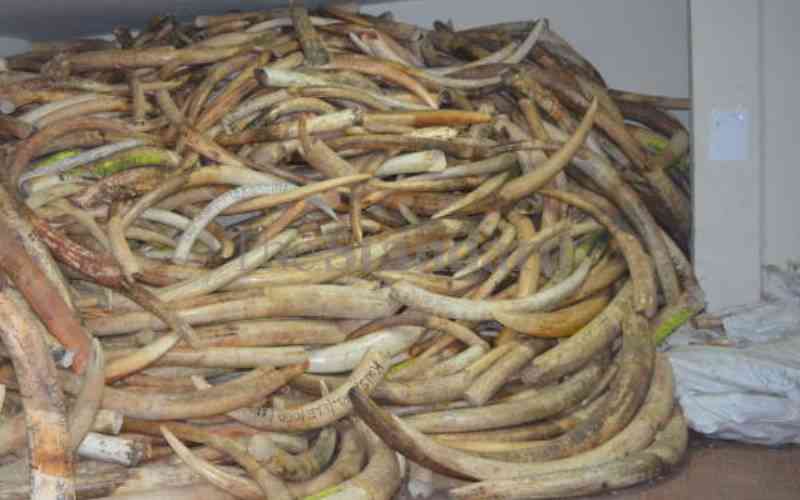×
The Standard e-Paper
Fearless, Trusted News

The Ministry of Tourism and Wildlife has declared the ivory and rhino horns in its possession as per the Convention on International Trade in Endangered Species of Wild Fauna and Flora (Cities).
Through a gazette notice dated November 20, Tourism and Wildlife Cabinet Secretary Alfred Mutua said that the country like all other signatories to cities is obligated to declare how it intends to destroy ivory and rhino horns.